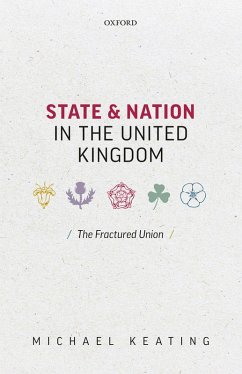The United Kingdom has often been seen as a unitary nation-state. This book argues that it should be understood as a plurinational union in which the key elements of demos, telos, and ethos are contested. Except in the mid-twentieth century, its territorial boundaries have been contested and the matter of sovereignty has never definitely been settled. Since the end of the twentieth century, devolution to Scotland, Wales, and Northern Ireland has made this more apparent. With the weakening of the British national project, tensions between the centre and the peripheral nations have grown, greatly exacerbated by Brexit. Eurosceptics have long argued that membership of the European Union is inconsistent with the sovereignty of the British people and Parliament. On another reading, however, both the UK and the EU are plurinational unions and highly compatible. The EU, indeed, served as an important external support system for the devolution settlement. Brexit destabilizes it. Unionism historically served as a doctrine and a set of practices seeking to reconcile a unitary state with a plurinational reality. Since devolution, it has struggled to come to terms with the new constitutional reality or embrace the idea of shared sovereignty. The Union is under increasing strain but there is no simple way of resolving these strains, either by secession of the component nations, or a return to the unitary state. The peoples of these islands need to find new constitutional concepts for living together in a world in which traditional ideas of national sovereignty have lost their relevance.
Dieser Download kann aus rechtlichen Gründen nur mit Rechnungsadresse in A, B, BG, CY, CZ, D, DK, EW, E, FIN, F, GR, HR, H, IRL, I, LT, L, LR, M, NL, PL, P, R, S, SLO, SK ausgeliefert werden.









